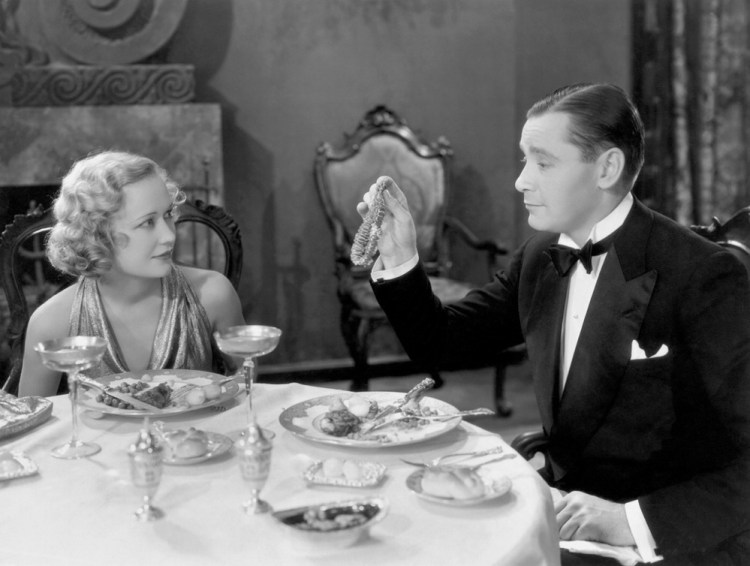Ernst Lubitsch probably isn’t a name that leaps to the tip of your tongue here in Maine, or even in Manhattan. But the legendary Ernst Lubitsch was once hailed, and still is among film buffs, as one of the great masters of light comedy in the “business.”
His “Ninotchka” with Greta Garbo and Melvyn Douglas, “The Shop Around the Corner” with Jimmy Stewart, and Jack Benny’s comic hit “To Be or Not to Be” will forever be listed as examples of the “Lubitsch Touch.”
But among these, there is an old jewel that debuted in 1932, and that would be “Trouble in Paradise.”
Lubitsch pulled his Art Deco comedy from Laszlo Aladar’s play “The Honest Finder” — a terrible title — brightened it up and hired a splendid cast: Herbert Marshall, who filled in and sparked up the plots of dozens of Hollywood movies over the years; the indefatigable Miriam Hopkins, who, even when she was 20, looked 40; Kay Francis, who was one of the era’s biggest leading ladies despite her famous baby talk lisp; and a bevy of comic sidekicks, including the indispensable Edward Everett Horton and stuffy old Charlie Ruggles.
“Trouble” requires us to loosen up and listen, because the dialogue is fast and furious, full of clipped questions and slap-in-the-face answers between the characters.
One such passage between Marshall and Horton plays like an Abbot and Costello skit. Maybe that’s where those boys got the idea, and surely the young Noel Coward was listening.
Marshall and Hopkins pose as Gaston and Lily, old European sophisticates, dashing around post-World War I Venice, bumping into one another and discovering that they are both former pickpockets who have advanced into black tie and gown con artists.
They play a pair of debonair jewel thieves who get the idea to rob Mariette (Francis), the rich heiress of a famous cosmetics firm run by her chief of staff, the wonderful C. Aubrey Smith.
Mariette is an easy target for a silver-tongued artist like Marshall’s Gaston. She has two silly wannabe lovers hanging around her who just aren’t up to her level of sophistication.
It’s hard for fans of Technicolor, fast-and-furious, high-powered action films to slow down and savor the gin-flavored subtle nuances of the old master’s techniques. But once in, you’ll be hooked.
Those of you who have become fans of Turner Classic Movies’ run of the 14 Nick and Nora Charles films starring William Powell and Myrna Loy will feel right at home with their cinema predecessors, Marshall and Hopkins.
Now, remember that this is 1932, before the infamous and prudish Hays Code was enforced and started making married couples, even real married couples, stop holding hands, let alone sleep together on film. So there are a lot of cute sexual moves between lovers in Lubitsch’s film.
In addition, Lubitsch peppers his film with a lot of built-in jokes, such as the opening shot, in which a floating Venice garbage collector in his gondola sings opera as he floats past lavish villas.
There are other gags that set the standard for future comedies — jumping in and out of closets, slamming doors and fake identities.
“Trouble in Paradise” may bore those who watch movies on their iPhones, but seeing this oldie but goodie on a truly big screen is a lot of fun.
Send questions/comments to the editors.




Comments are no longer available on this story